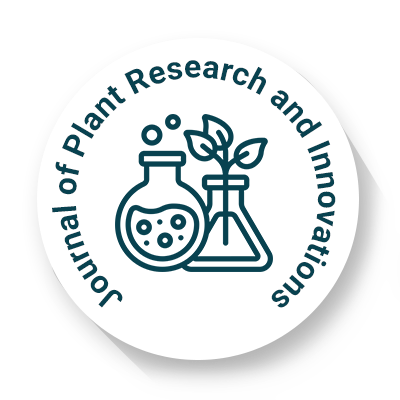
Journal of Plant Research and Innovations
OPEN ACCESS

OPEN ACCESS
Plant physiology is the study of the functional processes that occur within plants, including how they grow, develop, and respond to internal and external signals. It focuses on understanding the mechanisms behind essential activities such as photosynthesis, respiration, nutrient uptake, water transport, hormone regulation, and energy conversion. These processes are vital for plant survival, productivity, and reproduction. Plant physiology explores how cells, tissues, and organs work together to maintain balance and efficiency within the organism. Research in this area has led to significant advancements in agriculture, particularly in enhancing crop yield, improving stress tolerance, and optimizing resource use. Techniques such as gas exchange analysis, chlorophyll fluorescence, and molecular studies help researchers examine plant function in detail. A strong understanding of plant physiology provides a foundation for improving plant growth under both natural and controlled conditions, supporting sustainable farming and environmental management practices.
Ecophysiology, or environmental physiology, extends the understanding of plant physiology by examining how environmental factors influence physiological functions. It studies the interaction between plants and their surroundings, including light, temperature, water availability, soil nutrients, and atmospheric conditions. This field aims to explain how plants adapt to different ecosystems and stress conditions, such as drought, salinity, and extreme temperatures. Ecophysiology is critical for predicting plant responses to climate change and for guiding conservation efforts and habitat restoration. Researchers in this field use advanced tools and models to measure physiological responses under varying environmental scenarios. By linking plant function with environmental conditions, ecophysiology helps in identifying traits associated with resilience and efficiency, which are crucial for crop improvement and ecological sustainability. The integration of plant physiology and ecophysiology offers a comprehensive understanding of plant performance in diverse environments, supporting innovation in both agriculture and ecological research.